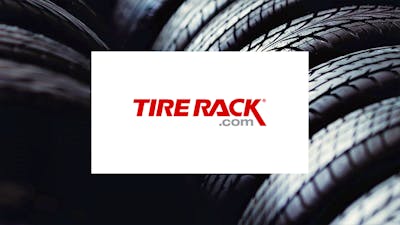Best Winter Snow Tires
There are many situations in which all season tires can be not only inadequate, but also dangerous. Weather that is more severe than light snow and temperatures that dip below 40 degrees fahrenheit can seriously challenge all season tires’ ability to maintain traction and perform safely.
Get the Best Deals on Tires
Now that we know why “snow tires” or winter tires are important, let’s take a look at the best models available today, but first:
What’s the Difference Between Snow Tires and Winter Tires?
“Snow Tires” were basically helpful for one thing: Snow. “Winter Tires” are helpful for the four months of the year when temperatures have plunged below freezing..
Snow tires don’t exist anymore. They haven’t since the mid-1990s. Back in the olden days, when your dad was fighting his way home from his job at Montgomery Ward in his 1966 Polara, snow tires were all that were available. They were just a regular bias ply tire with a more aggressive tread pattern. They were constructed exactly the same way as an ordinary tire, except they may have had the ability to be studded.
Winter tires are completely different from all-season or summer tires. To start with, the rubber compound stays elastic in temperatures under the freezing point. Summer tires and all-season tires do not use the same rubber compound and a dedicated summer tire will turn almost plastic-like in the cold weather, losing a lot of its ability to help you stop and corner when the weather gets cold.
Winter tire rubber compounds are also much more porous than a summer tire, as a means of ejecting water and slush, and gripping surfaces like smooth ice.
Finally, a winter tire has thousands of small cuts called “micro-sipes” in the tire’s tread blocks that help the contact patch -- the palm-sized area where your tire grips the road -- expand and conform to the road surface, and grip the asphalt surface below the cover of snow.
Car Talk recently launched our Golden Wrench Awards for excellence in tires, so our readers can have the most in-depth look into the best tire for purchase. Below are our top picks for Best Winter Tires for 2021.
Golden Wrench Award Winners for Best Winter Tire
Car Talk's Methodology
All of these tire picks were ranked using Car Talk's unique methodology based on over 30 different data points:
Consumer Satisfaction: Consumers provided data about what their experience was using tire models within each of these brands.
Industry Professionals: Car Talk researchers performed a nation-wide survey of over 800 mechanics and industry professionals for their opinions.
Government Reporting: Statistics reported for safety and durability.
Tire Quality and Engineering: A tire brand’s overall quality and engineering or innovation influenced a consumer’s decision to purchase.
Performance: Car Talk looked at how tires from these particular brands performed in a variety of weather conditions.
Best Winter Tires
Michelin X-Ice Xi3
The Michelin X-Ice Xi3 is our Golden Wrench winner due to its superior handling, quality and traction. This tire is excellent in ice and snow, has stellar customer reviews and ratings.
- Superior quality
- Superior handling in wintery conditions
- Available sizes: 15” - 19”
Continental Viking Contact 7
The Viking Contact 7 is awarded the Golden Wrench due to its excellent handling in snow and ice, solid customer satisfaction and excellent grip and traction when it is needed most.
- Excellent traction
- Excellent handling in wintery conditions
- Available sizes: 15” - 22”
Bridgestone Blizzak WS90
The Blizzak is one of the most popular and highly rated snow tires on the market. They use a combination of grooves and tread patterns that bite and grip in water, snow, slush, and even ice.
- Highly rated and reviewed
- Great grip in wintery conditions
- Available sizes: 15” - 19”
Cooper Discoverer True North
The Discoverer True North is awarded our Silver Wrench for its exceptional handling and grip in wintery conditions, as well as long its tread life.
- Exceptional handling
- Excellent tread life
- Available sizes: 16” - 20”
Goodyear Ultra Grip Winter Ice WRT
The Ultra Grip Winter Ice WRT is a solid choice for winter conditions, and has been awarded a Bronze Wrench due to good ratings and reviews, and dependable performance.
- Great ratings and reviews
- Good performance in wintery conditions
- Available sizes: 16” - 18”
Yokohama Ice Guard IG52c
The Ice Guard IG52c features advanced winter technology, which gives it great handling in intense wintery conditions. Grip, traction and performance are solid with this tire.
- Great traction
- Solid performance in wintery conditions
- Available sizes: 14” - 19”
When To Buy Winter Tires
The best answer to when to buy winter tires is “as early as possible,” but that only tells part of the story. The bigger question here is to understand when you need winter tires and when all seasons aren’t going to do the job safely.
If you live in a part of the country that gets regular snowfall in the winter, it might be tempting to run out and buy the most hardcore snow or winter tires you can find, but you might not need to. If you are a person whose job is critical and does not allow you to work from home, winter tires are a good idea. Doctors, nurses, firefighters, police officers, you get the point, jobs that require people to be present at all hours of the night and day.
On the other hand, if you have a job that allows remote work, don’t have anywhere to be in a snowstorm, and can afford to sit on the couch when the weather’s cruddy outside, you can probably get by with all season tires. Just don’t expect to claw your way out of snow banks and up steep driveways.
What Are Studs And Do You Need Them?
People who are especially paranoid about getting stuck in snow and who worry about sliding around on ice can add studs to certain models of winter tires. Some winter tires have the ability to have studs added onto the tread. The studs are essentially small metal spikes that help the tire get traction on even the slickest surfaces.
Many places have laws against using studs past a certain point in the year, as the metal spikes can wreak havoc on pavement in warmer weather. It’s also important to remember that studs decrease the level of dry traction a tire can generate because there are several pieces of metal sticking out of the tread.
Aren’t All Season Tires Designed for “All Seasons”?
If you live in an area where the air hurts your face for part of the year, you might already be well versed in the language of winter tires, but for everyone else, they can be a real mystery. Before the late 1970s, drivers had to swap between “snow tires” -- basically tires constructed out of the same rubber, but with a more aggressive tread pattern -- and summer tires in order to have any shot at keeping their vehicles on the road when the weather turned. All season tires came along and made those old snow tires less of a necessity for many people, but not all.
All season tires have their limits. When temperatures drop below 40 degrees fahrenheit, the rubbers in all season tires can become stiff and may have a hard time gaining traction. They may also split or crack if the temperatures are low enough. Further, all season tires’ tread patterns are not designed to grip in snow or to channel slush away from the wheels, so they’re less capable of biting and getting traction.
Shop Tires Online and Save
Online tire prices are usually less than in store

Winter Tire FAQ
- What’s the difference between winter tires and all-season tires?
The obvious difference is tread pattern, the less obvious difference is rubber compound.
Tread pattern on a winter tire is meant to help the tire grip ice better, with hundreds of little grooves in the tire that help the tread blocks to flatten out on the ice. Winter tires also have more space between the tread blocks so that the tire can eject packed snow.
Rubber compound is just as important, though. All season tires have a rubber compound that essentially turns to plastic at any temperature under 40 degrees. These tires will lose a significant amount of grip in dry weather if the temperature is colder than that. In snow, they’re all but useless. Winter tires have rubber compounds that stay flexible well below freezing, allowing the tire to maintain its grip on the road surface underneath at much colder temperatures than all-season tires.
- What is the best winter tire pressure?
This is no different than normal tires, but some winter tires (especially studded tires) may require a slightly different pressure depending on the model. Check inside your driver’s side door for a white and yellow label that will tell you the exact tire pressure recommendations for your vehicle model. That tire pressure can also change depending on the load of passengers you’re carrying, as well as the cargo load. Note that the pressure on the tire itself is never the correct setting, but rather a maximum.
- What is the best tire change kit?
Your vehicle should have come equipped with a compact spare tire and changing tools in the trunk. In this case, you already have everything you need to physically change the tire, but you may want to carry an extra roadside emergency kit with an upgraded lug wrench, jumper cables, and emergency markers just in case.













